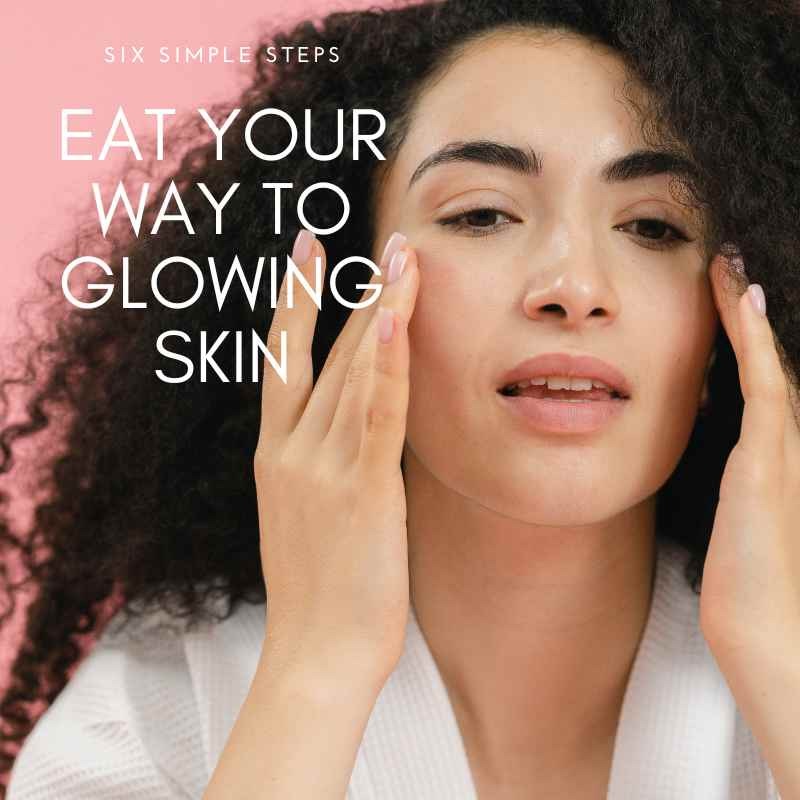Healthy skin starts from within, Our food choices, exercise, sleep and general well-being can impact skin health.
Here are my six simple steps to optimise the quality of your skin with foods.
Tip 1. Eat The Rainbow To Keep Skin Bright and Reduce Signs of Ageing
Stock up on antioxidant-rich fruit and veg. These are crucial for the entire body – not just the skin. They reduce the speed of skin ageing and degeneration.
Each different colour group contains a different set of plant chemicals, bringing a variety of different antioxidants into the diet has a synergistic effect, which means the combined result is more powerful than the individual parts.
Tip 2. Hydrate Hydrate Hydrate
Our skin cells need water to rebuild and to remove the build-up of toxins. This is a very simple step that most people don’t prioritise and yet the results and be striking.
Aim for at least 1.5 litres a day depending on weather conditions and your level of exercise. You’ll soon see the benefit for you skin. Why not include a green mint iced tea?
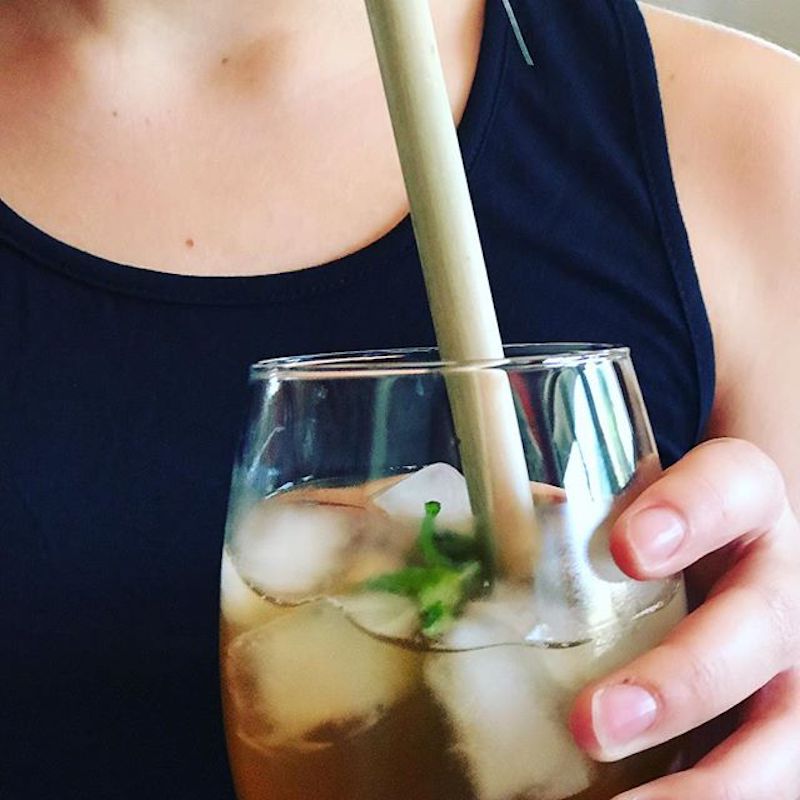
Tip 3. Protect skin with Antioxidants
Vitamins A, C, D, E and selenium are antioxidants that limit the damage done to collagen and elastin by free radicals. (1) It is important to note that Vitamins A, D, and E are fat-soluble, so a balanced approach is key if supplementing, as too much can lead to toxicity.
Vitamin C is important for collagen production.
Foods to include: blackcurrants, red peppers, kale, collard leaves, broccoli, kiwis, oranges, courgettes, cauliflower and spinach, citrus fruit.
Vitamin A helps control the rate of keratin. A lack of vitamin A can result in dry, rough skin.
Foods to include: sweet potato, carrots, butternut squash, spinach, kale, collard greens, turnip greens, romaine lettuce.
Vitamin E helps to maintain healthy skin and strengthens the body’s natural defence.
Foods to include: nuts, seeds, oily fish, broccoli, avocado, pumpkin, wheat germ.
Vitamin D. Skin cells produce a chemical that converts into vitamin D in sunlight. It’s important for many functions in the body, including immunity, blood sugar balance and bone health.
Foods to include: It’s hard to get enough vitamin D from food alone, but try to include more sardines, salmon, tuna, swordfish, eggs, and mushrooms – and don’t forget a daily dose of getting out into the sun! However, a good SPF is also important to protect against the sun’s UV rays.
Selenium has anti-inflammatory properties, which can help to reduce redness, swelling, and irritation in the skin.
Foods to include: wholegrain cereals, walnuts, Brazil nuts, molasses, mushrooms, cabbage, courgettes, cheese, eggs, cod, oysters, tuna, herring, chicken, beef, and liver.
Salads are a great way to get a broad range of these nutrients. Why not try my easy salad pots with miso dressing?
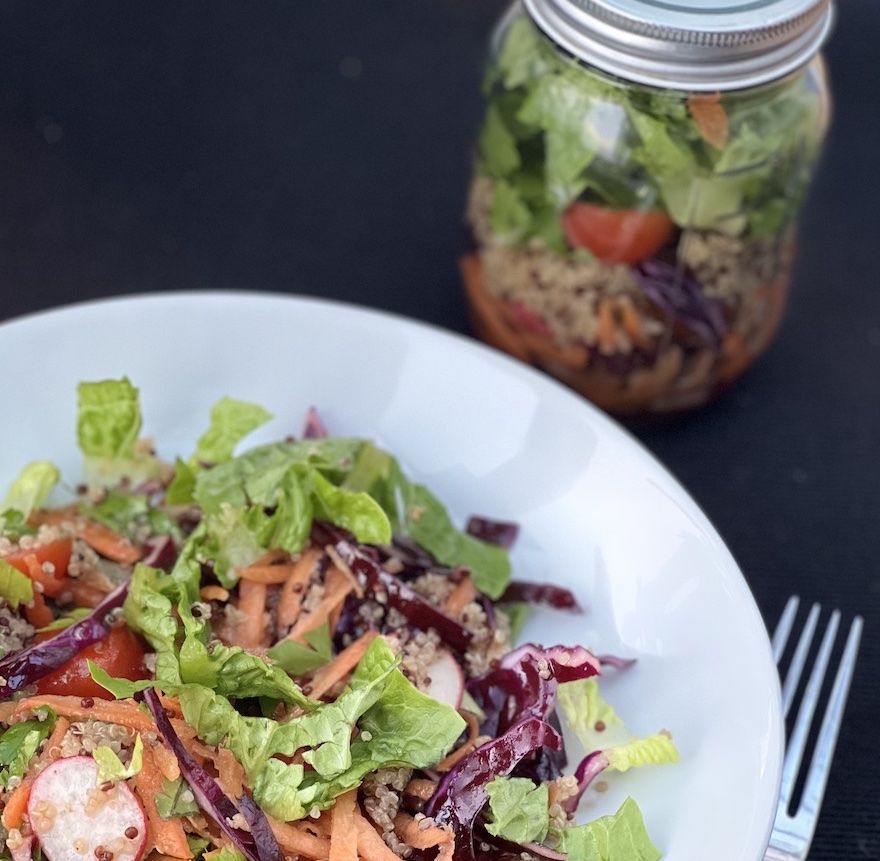
Tip 4. Balance Skin with Probiotics
Much like probiotics improve gut health, they may also improve skin health. The gut and the skin are connected through the gut-skin axis. Probiotics interact with our skin’s immune cells, helping them distinguish between harmless bacteria and invaders. This can support Inflammatory conditions like acne, eczema and psoriasis. (2)
Foods to include: fermented foods such as live yoghurt, kefir, kombucha, miso, sauerkraut and kimchi. Why not add a spoon of live yoghurt to your morning muesli, or add a spoon of Sauerkraut or try this Kickin Kimchi to your lunchtime sandwich?
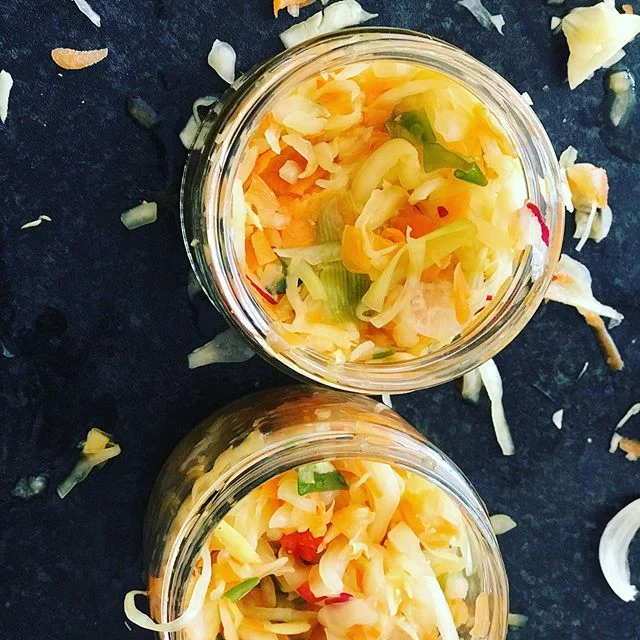
Tip 5. Calm Skin with Zinc
Zinc is important for the production of skin cells. A lack of zinc can result in poor skin healing, eczema and rashes. (1)
Foods to include: green vegetables, oats, nuts, sesame seeds, pumpkin seeds, yoghurt. venison, fish, ginger root, lamb, lean beef, turkey. Why not try a zinc rich breakfast like bircher muesli?
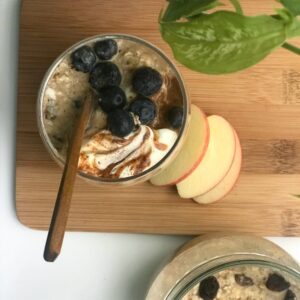
Tip 6. Keep Skin Plump with Essential Fats
Essential fats are key for making cell membranes. A lack of essential fats causes cells to dry out too quickly, resulting in dry skin. (1)
Foods to include: oily fish (salmon, sardines, halibut, scallops), flaxseed, walnuts, soya beans, and tofu. Why not try a tray bake with salmon or tofu?
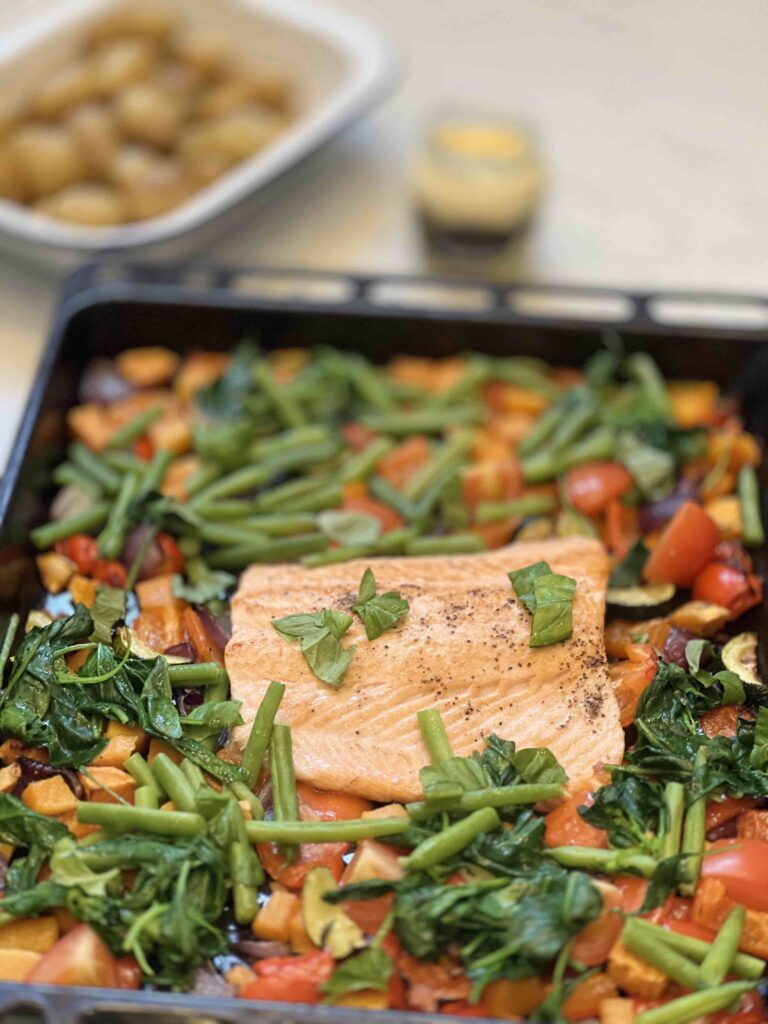
As a Nutritional Therapist, I work one to one with clients to help overcome issues such as chronic skin conditions, through diet and lifestyle.
A targeted nutrition plan can work wonders for skin problems like acne, eczema, rosacea and psoriasis. Understanding the root causes of these conditions, which may be due to inflammation, hormones, or stress, and devising a bespoke plan that takes into all of your skin, and health concerns, can make a huge difference.
If you would like to explore further how foods can help, I offer one to one online support and can devise a bespoke nutrition plan for you. Why not book a FREE Mini Health Review, and explore Nutritional Therapy options to suit your needs.
If you are looking for specific advice on natural skincare options that are clean and effective and help the skin to glow from within, then why not book a Free Natural Skincare Consultation? I am proud to be a Tropic ambassador, and can advise on a skincare routine to suit your needs.
You can also subscribe to my bi-monthly newsletter with nutrition tips, recipes and special offers on the products and services I offer (check the link in footer).
Wishing you well.
Lucie 🙂
BA, Dip NT, mBANT
Sources:
(1) Bioactive compounds for skin health a review: https://pubmed.ncbi.nlm.nih.gov/33445474/
(2) Potential Role of the Microbiome in Acne: A Comprehensive Review. https://www.ncbi.nlm.nih.gov/pmc/articles/PMC6678709/

